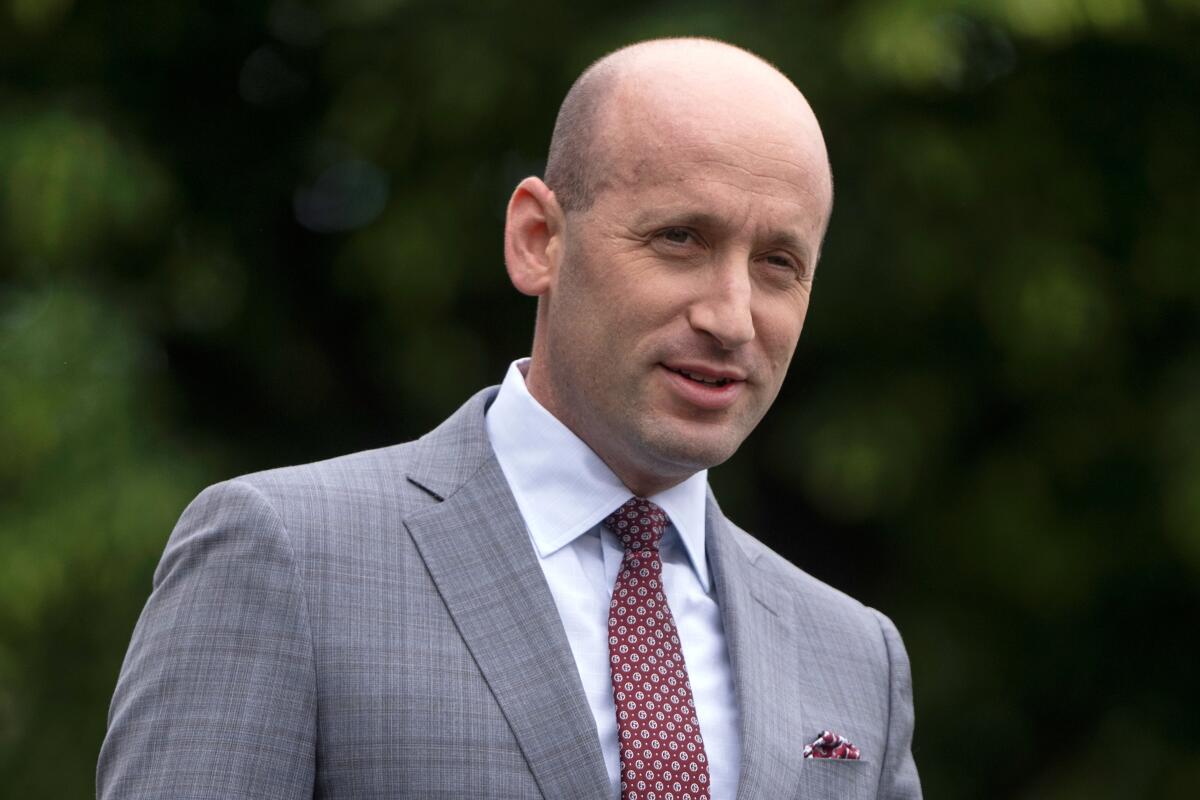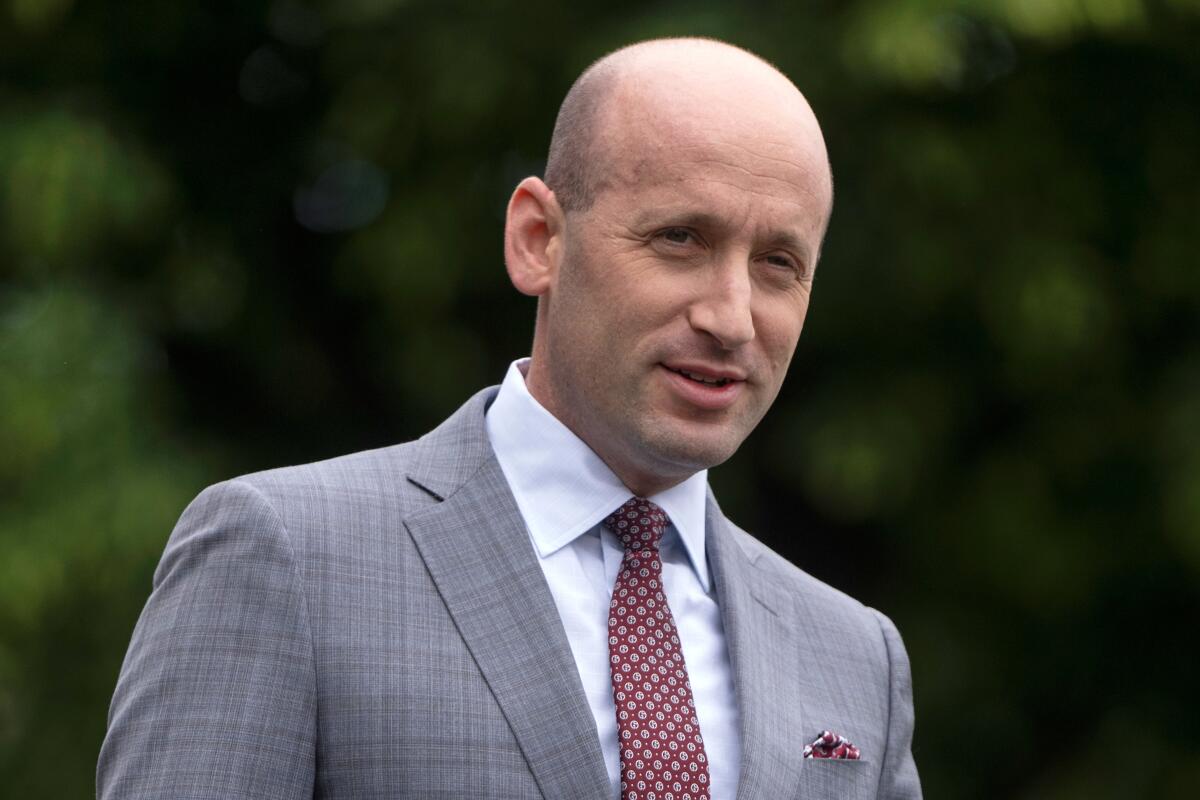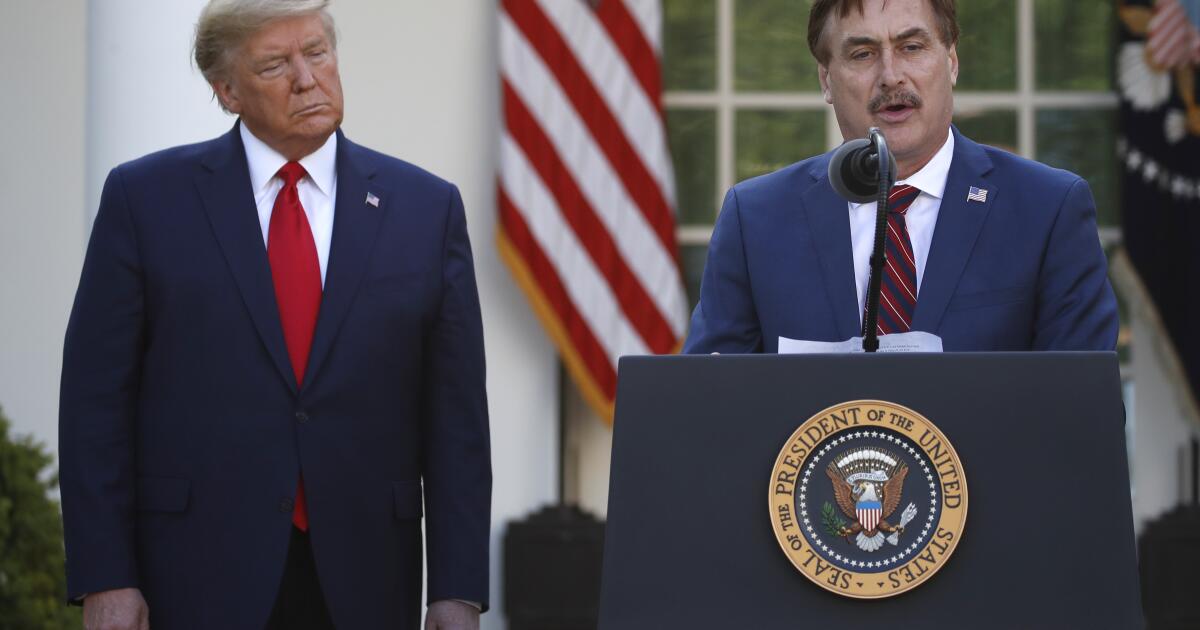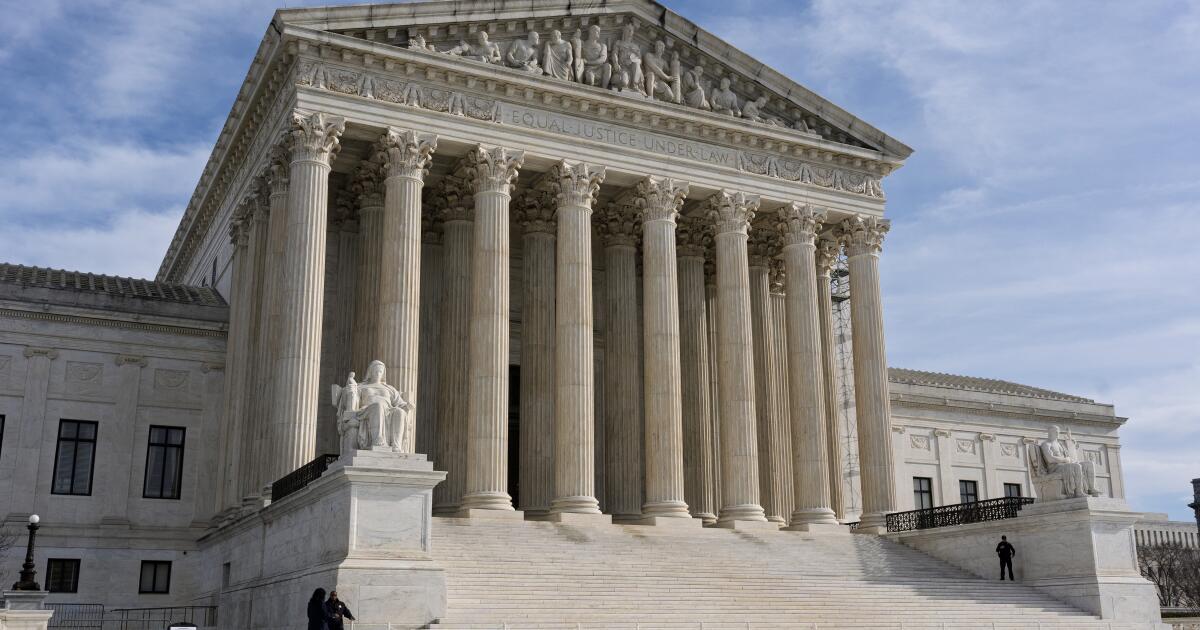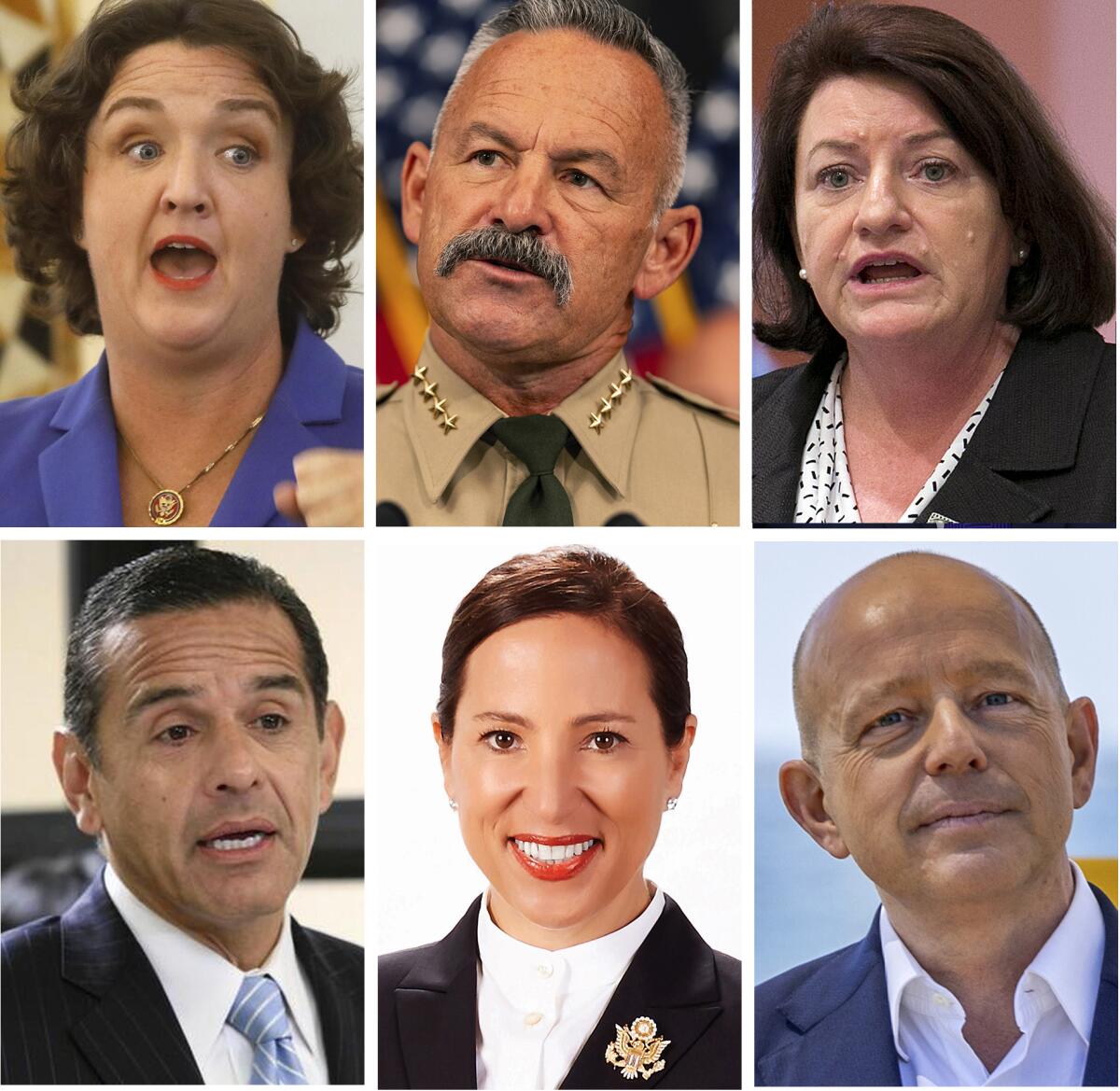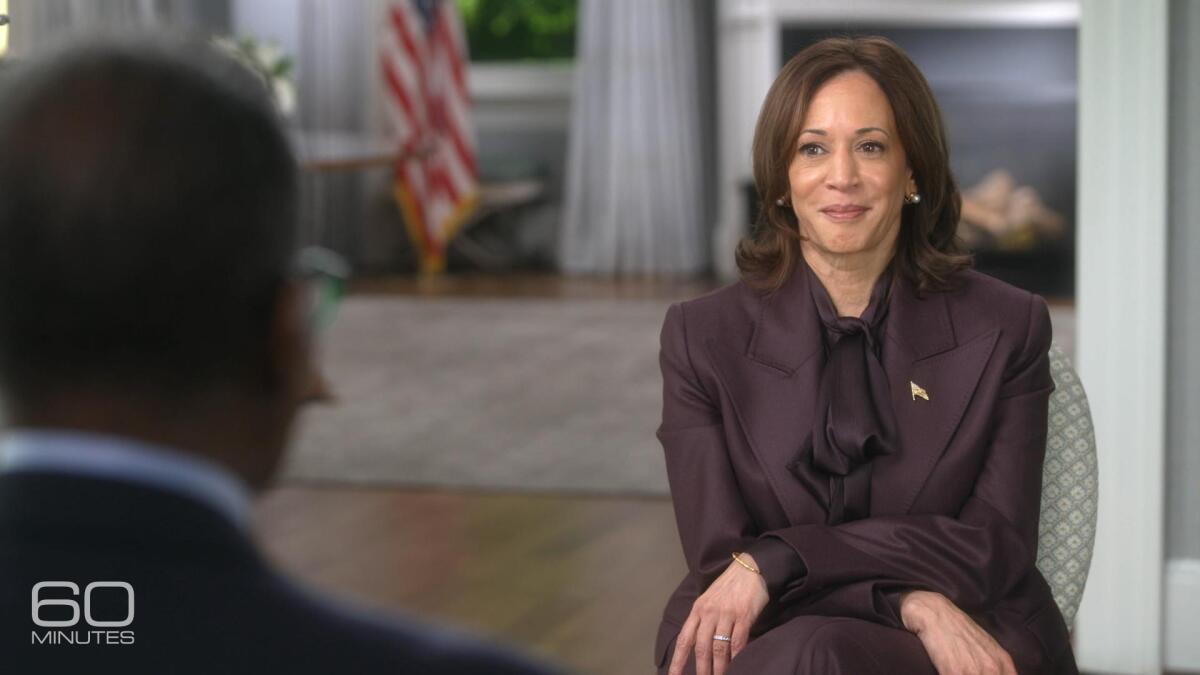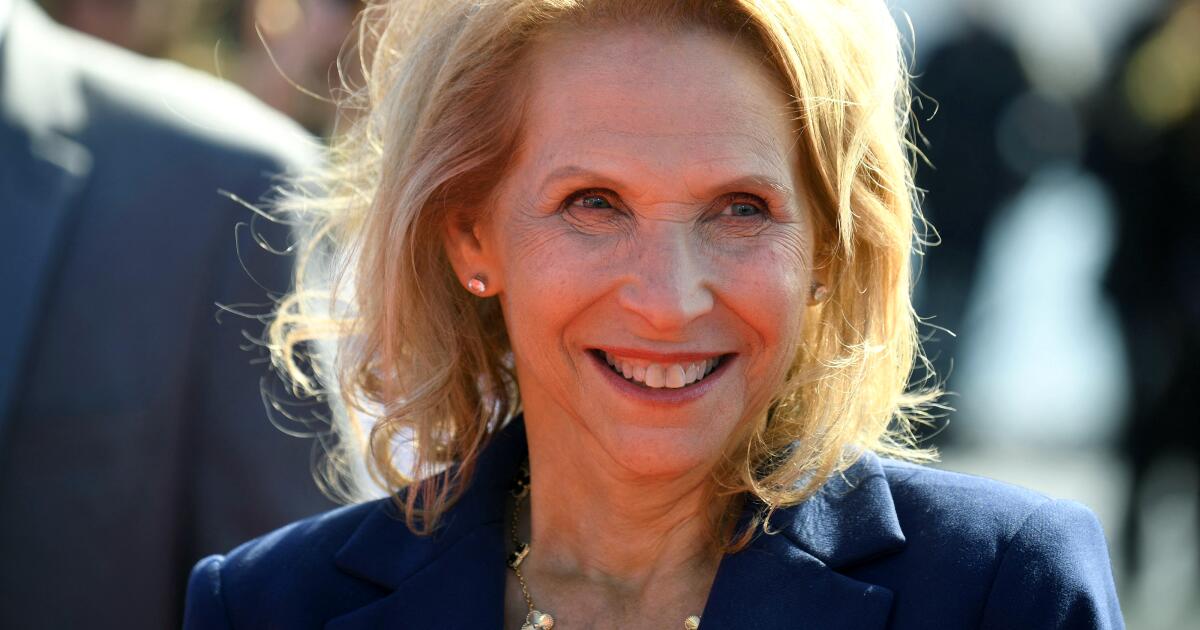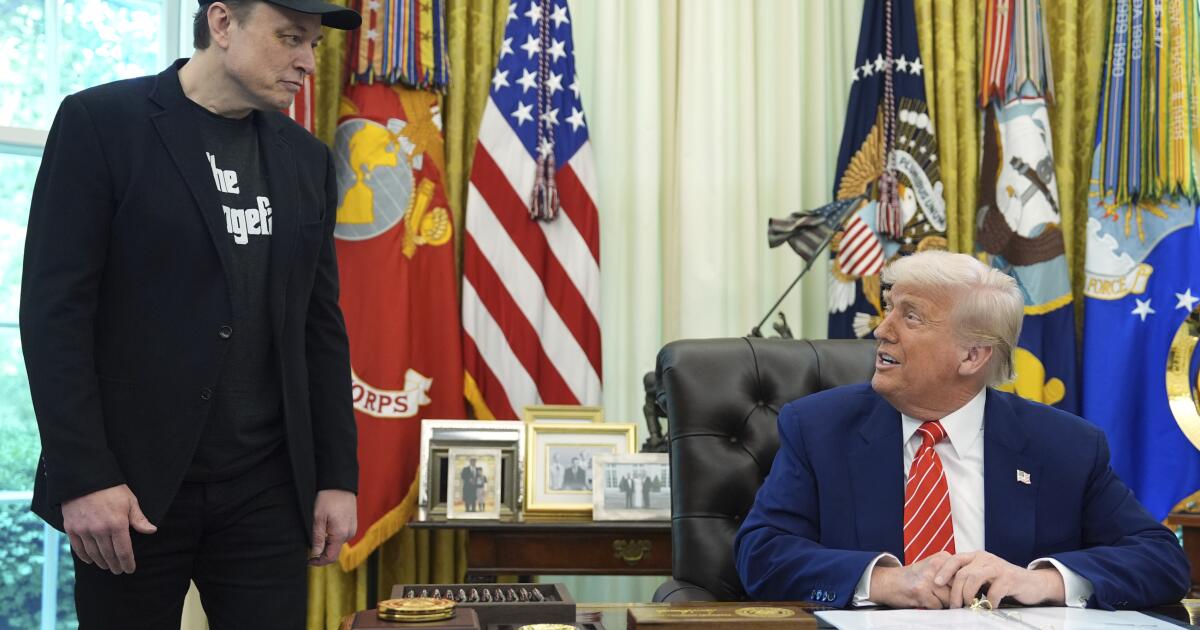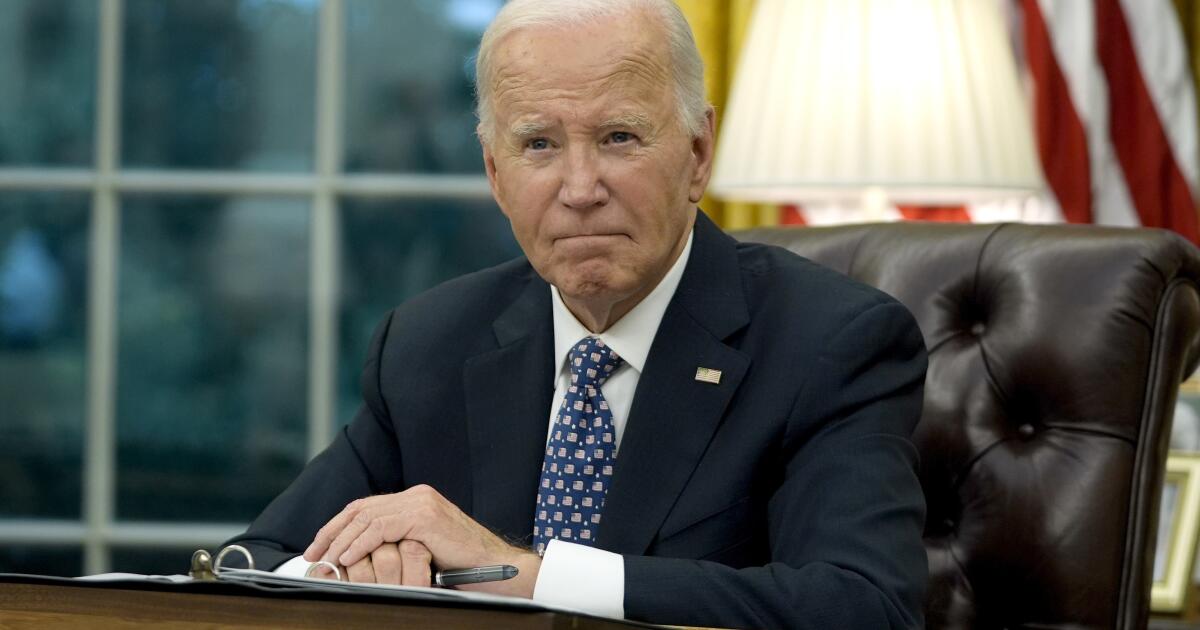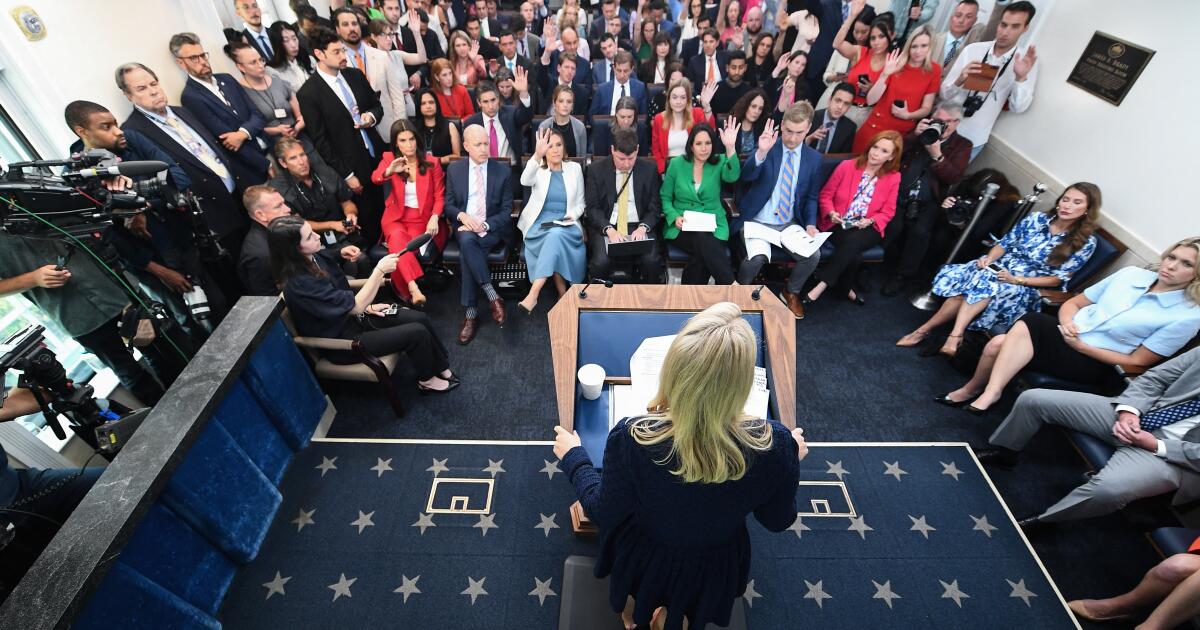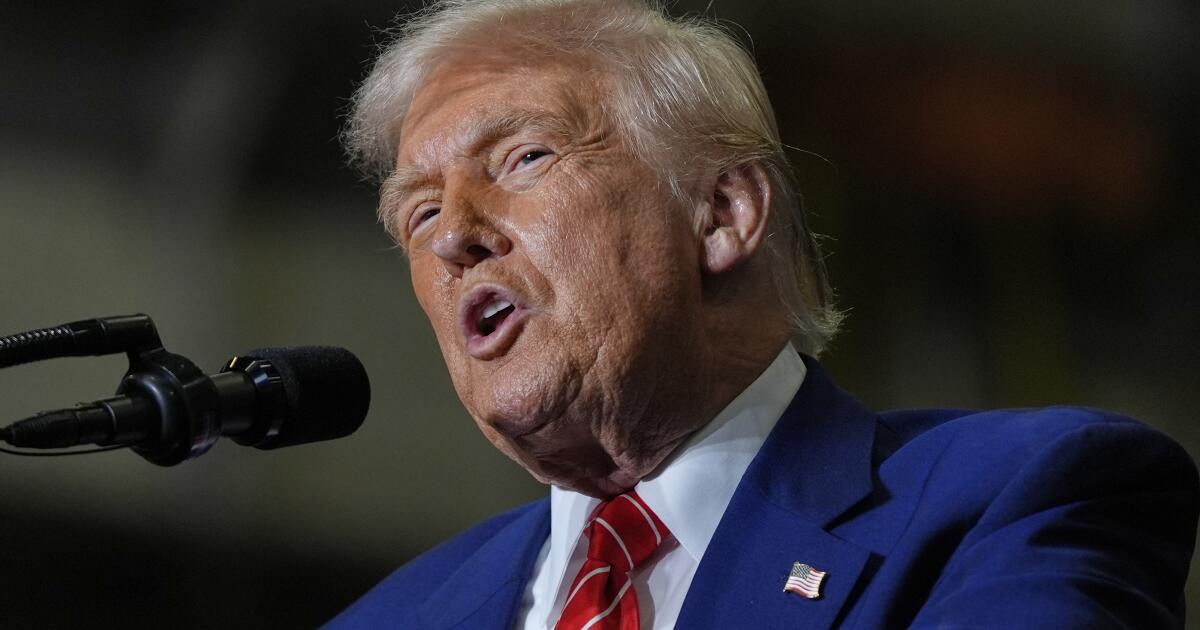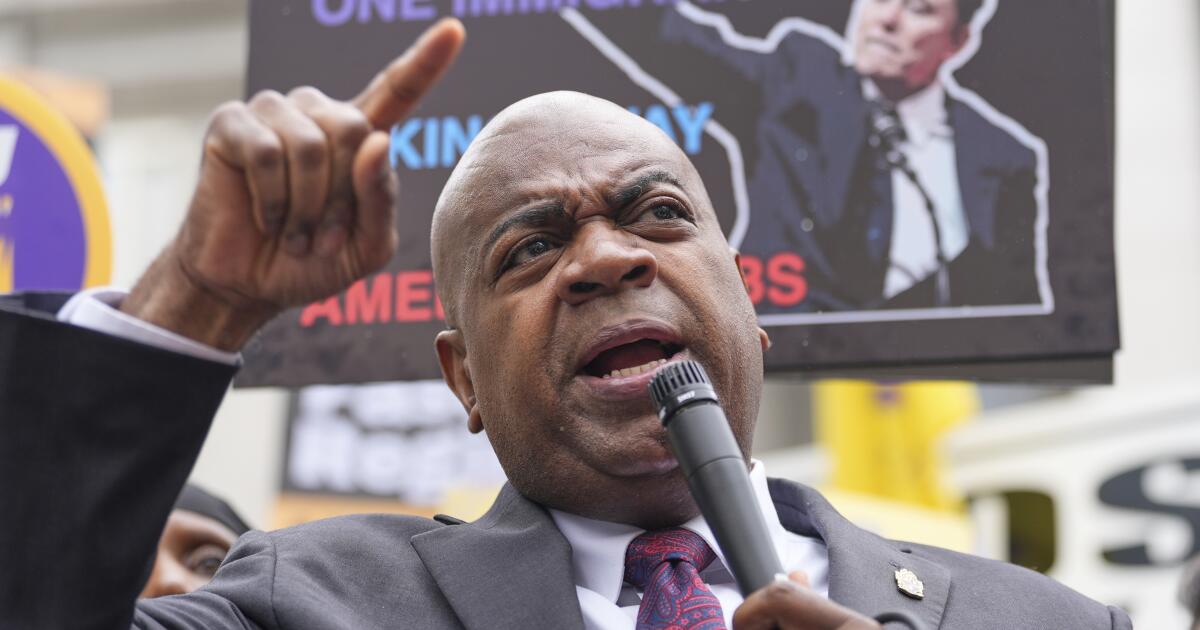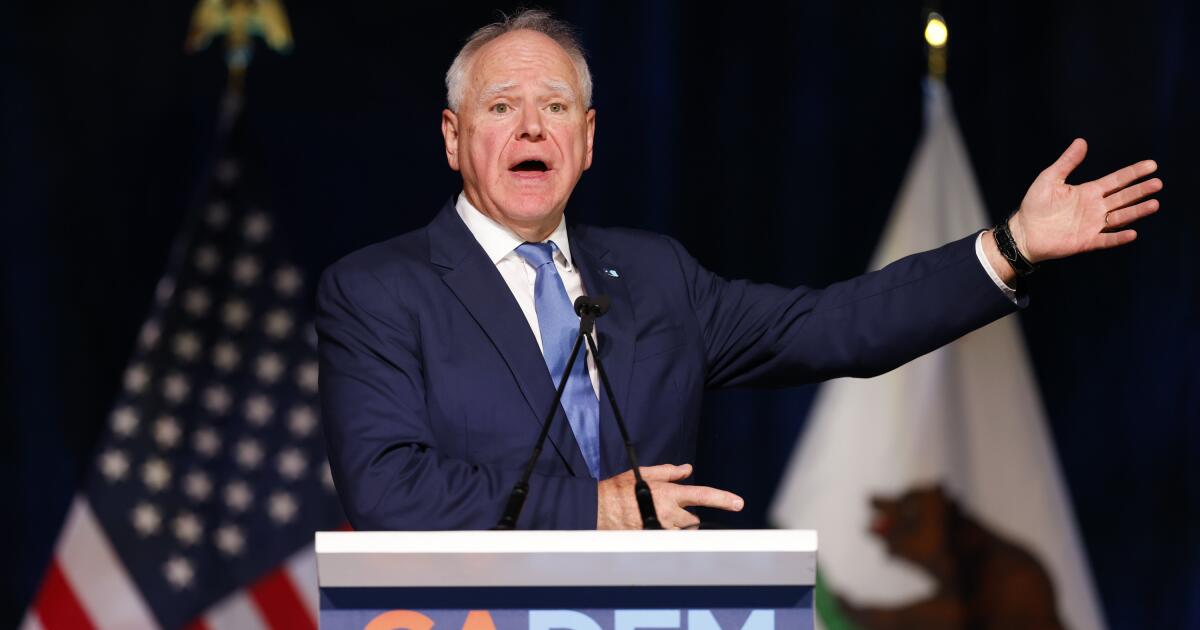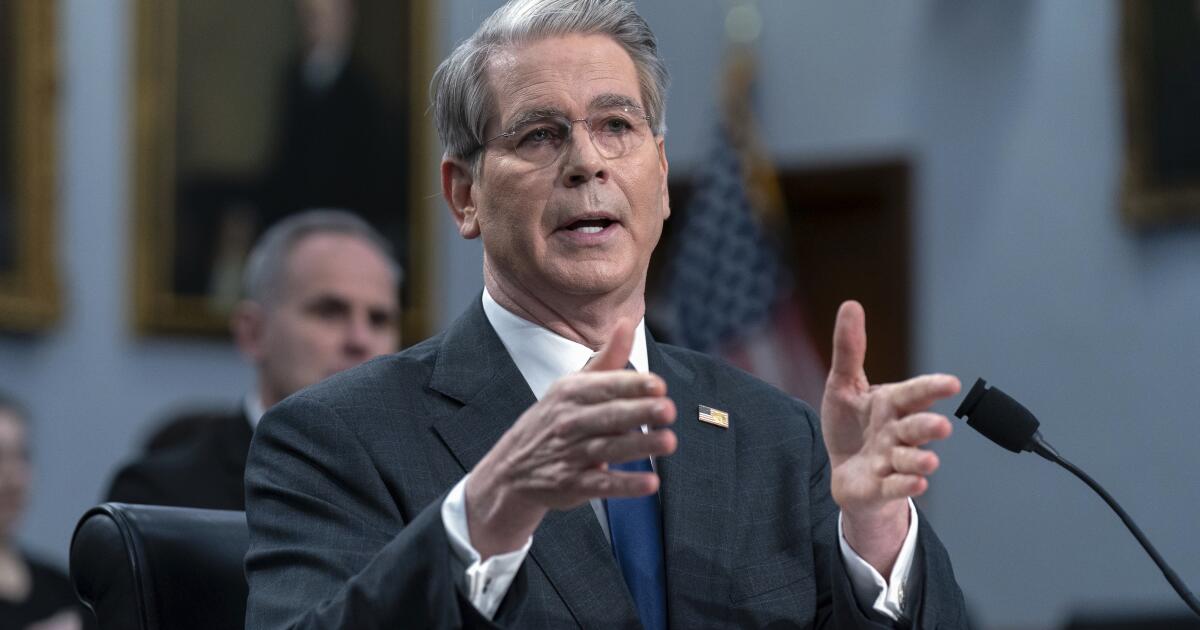The insurrection that wasn’t, and other Trump fantasies
To hear our national leaders tell it, Los Angeles is in chaos and our governor and mayor are out to lunch with the police, blissfully ignoring reality as the city burns.
“These Radical Left protests, by instigators and often paid troublemakers, will NOT BE TOLERATED,” President Trump wrote on social media, shortly after ordering the National Guard onto our streets.
“To the extent that protests or acts of violence directly inhibit the execution of the laws, they constitute a form of rebellion against the authority of the Government of the United States,” he wrote in a memo Saturday, authorizing 2,000 National Guard troops to be deployed in L.A. for at least 60 days.
Put down your matcha lattes and trade in your Birkenstocks for boots, folks. We are the revolution, apparently, so dangerous only a seasoned military can stop us. The only problem, of course, is that Los Angeles is not in chaos on this particular sunny Sunday and the vast majority of Angelenos are just trying to enjoy the weekend without becoming a federal prisoner.
Trump’s memo will go into the history books as a moment when presidential power expanded to put under his control a military force aimed at U.S. civilians. Although not unprecedented, the dean of UC Berkeley’s law school, Erwin Chemerinsky, said it was “stunning.”
All the more so because the deployment is based on a lie. Yes, there has been some violence in the last few days as federal immigration authorities round up criminals and regular folks alike in deportation sweeps. If you keep the camera angle tight on those protests, as many media outlets have done, it does look dire.
Rocks being thrown, even Molotov cocktails. Masked protesters hammering at concrete pillars outside a downtown federal building. Cars on fire.
All of this is terrible and those responsible should be arrested — by our local police and sheriffs, who are more than up to the job of handling a few hundred protesters.
But 99% of this city is business as usual, with brunches and beach walks and church and yoga classes. And even in those few pockets where the protests are happening, such as a march downtown Sunday, this is Los Angeles — I’ve seen more chaos after a Lakers game.
Jessica Levinson, a law professor at Loyola Law School, told my colleague Seema Mehta that although it’s extremely unusual for a president to take federal control of troops, it’s not unprecedented and maybe not illegal. It happened in 1992 during the Los Angeles riots after the Rodney King verdict.
“One of the exceptions is when there is violence and the inability of the federal government to enforce federal laws,” Levinson said. “And that is exactly what the president is arguing is happening.”
My intrepid colleagues at this paper have been on the ground since the first protests began, and, as their reporting shows, the majority of what is happening is peaceful and isolated.
Even the cops agree. And seriously, when the cops are agreeing there’s no riot — there is no riot.
“Demonstrations across the City of Los Angeles remained peaceful and we commend all those who exercised their First Amendment rights responsibly,” the LAPD wrote in a statement Saturday night.
Still, by Sunday morning, those troops, in full military gear with guns in hand (presumably with less lethal ammo, I hope), were arriving. The U.S. Northern Command tweeted that the 79th Infantry Brigade Combat Team has some members on the ground in Los Angeles, with more to come.
“These operations are essential to halting and reversing the invasion of illegal criminals into the United States. In the wake of this violence, California’s feckless Democrat leaders have completely abdicated their responsibility to protect their citizens,” Karoline Leavitt, the White House press secretary, further explained before they arrived.
Also, as you plan your week, there is now a dress code — at least for civilians, not the authorities intent on hiding their identities.
“(F)rom now on, MASKS WILL NOT BE ALLOWED to be worn at protests. What do these people have to hide, and why???” Trump wrote.
All this, Gov. Gavin Newsom said, is “not to meet an unmet need, but to manufacture a crisis.”
He’s right — Los Angeles has landed a starring role in Trump’s war on brown people. It makes sense. We are a city of immigrants, of all colors, and a Democratic — and democratic — one at that. What’s not to hate?
Mayor Karen Bass told my colleague Rachel Uranga that her office had tried to talk to the White House to tell them “there was absolutely no need to have troops on the ground,” but got nowhere.
“This is posturing,” Bass said.
“They want violence,” Newsom added in a Sunday email. “Don’t give them the spectacle they want.”
I’m not sure that’s possible. There will always be the bad actors, the violent ones, at any protest. And again — they should be arrested.
But Trump is going to laser-focus on those few to make an example of this city, and to increase his own power.
Because although this “insurrection” is a fantasy, his dream of more power seems all too real.


